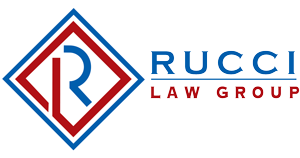
Today, so much of our lives are online. We have social media accounts, document storage, banking and daily communication across multiple devices. Almost all of us have an active digital footprint. Digital Assets generally include any electronic record in which you have a right or interest, including any asset or liability which is itself an electronic record, regardless of the ownership of the device or account used to create such electronic record. A Digital Account includes all arrangements under which a custodian carries, maintains, processes, receives or stores a Digital Asset or provides goods or services in which you have an interest, or which you are lawfully entitled to use, also regardless of the ownership of any device on which the Digital Account is accessed or stored.
Bank statements and bills; paid online or free subscriptions and accounts with companies like iTunes, Amazon, LinkedIn, Twitter or Instagram; digital currencies, such as Bitcoin; blogs or a domain you might own; as well as cloud-based photo storage; voicemail messages; reward programs and credit card points; all count as Digital Assets. If something were to happen to you, who would know what accounts you have and would they be able to access them online? Some of these accounts might have significant monetary or sentimental value.
Under Connecticut law, you can appoint a fiduciary to access your Digital Assets if you pass away or become incapacitated. This explicit authorization is critical to enable the fiduciary to obtain access to your Digital Assets. It is essential to include such powers in your Last Will and Testament or Trust and in your Power of Attorney to ensure that your fiduciary will have access to your online information and accounts. It is important to review your estate plan to ensure that not only are your financial and real and personal property provided for, but also your digital assets are considered and can be properly managed by your fiduciary. Access to your digital assets and your specific wishes as to how they will be handled after your death are just as crucial as access to your physical and financial assets. To make sure your fiduciary is aware of and has access to your accounts, we recommend:
- Compiling an inventory of all online accounts and assets. This list should be kept together with your estate planning documents. Be sure to include your username and password and any other necessary information for all accounts, including social media accounts, your Cloud account, and online banking accounts. This list should be updated each time your passwords change.
- Providing Instructions for Digital Assets. Let your fiduciary know how you would like your digital assets handled at death. For example, would you like photographs from your Facebook, Instagram or Cloud account passed to your loved ones? Would you like your social media footprint to be eliminated completely? This is important guidance to your fiduciary so he or she is aware of your wishes.
- Updating your estate plan documents, as needed. Make sure your estate plan documents specifically include access to your digital assets. You may personalize your plan to name a specific individual to be your agent for Digital Assets, who may or may not be the same person you choose as your executor, or you may decide to limit access to certain Digital Assets.
As with every aspect of your estate planning, the goal is to be prepared and to make sure your wishes are followed. Providing access and instructions to your fiduciary and a list of accounts your fiduciary should be aware of are key steps in making sure there is access to important information and the value of your Digital Assets are preserved.
Michele D. Gartland is a partner of Rucci Law Group, LLC. She practices primarily in the areas of trusts and estates. Michele can be reached at 203-202-9686 or at [email protected].
